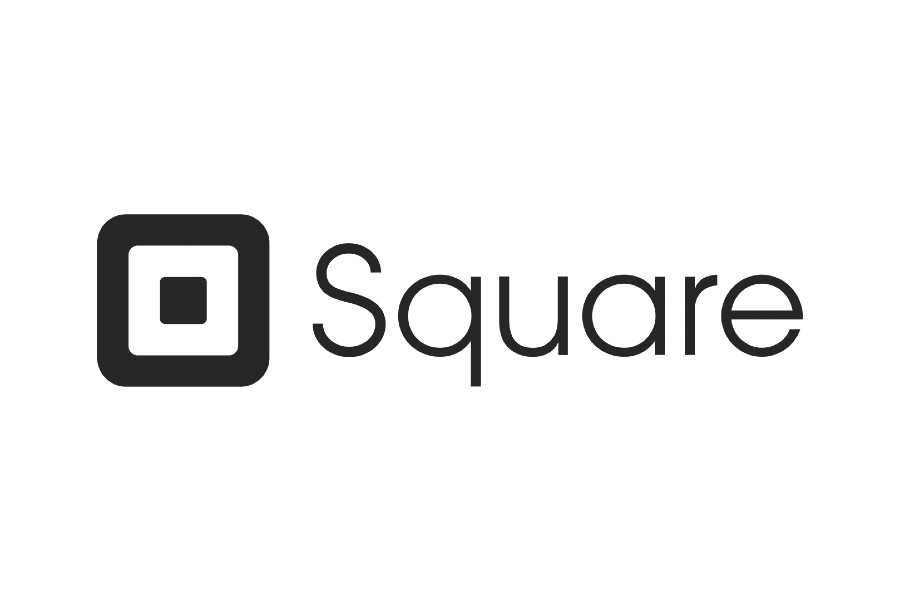An Ultimate Guide on Real Estate Referral Fees (+ Template & Calculator)

Real estate referral fees present a straightforward way for agents to generate passive income from clients they cannot assist. If a client is outside your practice area, out of your expertise, or too busy, you can refer them to another agent and earn a fee for sharing the lead. Referral fees can range from 20% to 35% of the earned commissions. This guide provides you with comprehensive data on real estate referral fees. It will cover how to ask for them, who pays for them, their pros and cons, and some real estate referral statistics.
What Is a Real Estate Referral & a Real Estate Referral Fee?
A real estate referral is when a licensed agent suggests a potential buyer or seller to another licensed agent to handle a transaction. Once the referral is made, the referred agent becomes the buyer’s or seller’s primary point of contact. If the transaction is successfully completed, the referring agent receives a fee, which is called a real estate referral fee. There are several ways to get real estate referral leads, such as hosting events, community involvement, networking, nurturing relationships post-transaction, and referral partnerships.
How to Ask for a Real Estate Referral Fee
Asking for a referral fee doesn’t have to be complicated, especially if you bring it up during the referral conversation itself. If you’re referring a client to another agent, agree on the fee amount before introducing the client to them. After deciding on the fee, send over a real estate referral fee agreement to be signed and present it via email, text, phone, or in-person meeting to the referred agent. This approach helps avoid misunderstandings and allows you to secure the deal while you’re still in a solid position to negotiate.
If you’re looking for a ready-made referral agreement, download our free downloadable referral agreement contract template below.
How Much Is a Real Estate Referral Fee?
Referring agents in real estate typically earn a referral fee equivalent to 25% of the gross commission earned by the agent they refer the client to. However, the parties involved can negotiate this fee depending on their situation. The referring agent only receives payment if the deal is closed, as the fee depends entirely on the commission.
For example, if you are making a referral to a client you’ve worked with multiple times, you may want to charge a higher fee since you know they are a solid referral source and easy to work with. On the other hand, if the client you’re making a referral to is a new acquaintance and you have not spent time vetting them, which the referral agent will have to do, you may want to charge a lesser fee for the work the referral agent will complete with that client.
Who Pays the Real Estate Referral Fee?
In a customary real estate transaction, the referring agent is entitled to a referral fee from the agent who successfully closes the deal when they refer a client. This fee reduces the referral agent’s commission. Typically, the agent who completed the deal will get an additional check cut from their brokerage for the referring agent’s commission and distribute that check to the agent.
In some circumstances, the title company handles an extra check to be distributed to the referring agent’s broker and the referring agent whenever a third party is involved. The referring agent typically receives payment within 10 days of the closing.
How Real Estate Referrals Work in a Transaction
If you want to ensure a hassle-free and convenient method for obtaining referral fees while sharing a lead with another agent, our step-by-step guide consisting of five easy-to-follow instructions will be immensely helpful. By following these simple steps, you can streamline the process and make it more efficient, saving time and effort for you and the other agent.
1. Formalize Your Referral Agreement Contract
Preparing a contract is the first step in handing a referral client to another agent. A real estate referral agreement contract, which includes key elements such as the referral fee, duration of the agreement, and the responsibilities of each party, is a formal document that outlines the terms of the referral transaction between the referring and receiving real estate agents. It’s a legally binding document that protects both parties and ensures they are clear on their roles and responsibilities in the transaction.
Here is a free downloadable template that you can use for your real estate referral contract:
A well-drafted real estate referral agreement contract helps agents create a smooth and transparent referral process. This agreement also mitigates potential misunderstandings between two agents. Every experienced and new real estate agent should have a template contract available if they want to refer someone to or receive a referral from a colleague. The following are the main elements to include in a standard real estate referral agreement contract:
- Contact information: This section should include names, addresses, and contact information for all parties involved, including clients, referring agent/broker, and receiving agent/broker. It also helps to include license information for the referring agent/broker and the receiving one.
- Referral fee percentage: This is the percentage of commission due to the referring agent. This piece should be concise and identify whether the percentage is gross commission, net commission, etc.
- Payment terms: These identify when the payment is due.
- The scope of services: This outlines services expected from the receiving agent.
- Agreement duration: Real estate transactions can be a long process, so having an end date to the agreement with an extension clause can ensure you get your referral fee if the transaction drags on.
Agents can include additional language addressing potential disputes, confidentiality clauses, and termination conditions in the agreement. It’s key that once an agreement is drafted, both the referring and receiving parties sign it to make it a binding contract. There are often different referral real estate transactions that may require a specialized agreement. The different referral types are:
- Referrals to an agent in another state or location: Real estate referrals follow the same rule across neighborhoods and state lines. Depending on your broker or situation, the standard realtor referral fee applies, with minor variations.
- Referrals for commercial transactions: To work with commercial properties and clients, you must know how commercial transactions work. If one of your residential clients comes to you seeking help with a commercial transaction, you can refer them to a commercial agent if you are unfamiliar with the process.
- Referrals to relocation companies: These companies offer an all-in-one service, helping people moving to a new area buy a new home. They can sell their old home and support them during the move. The standard referral fee percentage for relocation companies can be much higher than the standard rate of 25%, but working with relocation companies can be a steady income stream.
- Referrals from non-agents: Sometimes, you will receive referrals from your sphere of influence. However, you cannot share your commission with someone who is not a licensed salesperson. Instead, you can give them a gift in return for their referral. Check with your broker about the guidelines because monetary gifts can be limited.
Be aware that some states, known as ‘turf states,’ do not allow outside agents to conduct business within their borders. This means that if you are referring a client to a property in one of these states, you may need to work with a local agent. Check out our 50 State Real Estate License Reciprocity & Portability Guide for more details on these restrictions.
2. Get Client Approval
Before sharing your clients with other real estate agents, talk to the clients about the person or program you are referring them to and why. After they’ve agreed to the referral arrangement, get all the details about where they are relocating, their timeline for selling their home and/or buying a new one, their financial status, and what they’ll be looking for. You’ll need to share this information with the agent you are referring the client to so they can work with them.
Even though referrals can be a great way to make money in real estate, remember that your client is the most essential part of the referral process. Not only must they work with the referred real estate agent for you to receive a fee, but you also should provide them with a genuinely trustworthy agent. You should periodically check in with your client and the agent you referred to stay aware of where they are in the process.
3. Find & Enlist an Agent You Trust
Finding a trustworthy agent to share your client’s real estate needs will ensure you are compensated for the real estate referral. The best way to find other agents you trust is through networking, where you can build genuine relationships. However, even the most social real estate agents don’t always have a go-to agent in every location.
Here are a few of the top online networks you can use to find a reliable agent:
- ReferralExchange (the referral network recommended by the National Association of Realtors)
- Agents Referral Network
- Regentology
- Premier Agent Network
- Coldwell Banker Realty Referral Network
- Zillow Flex
Do your due diligence when referring clients to agents you don’t know. You could do this by checking the multiple listing service (MLS) transaction history to ensure the agent is active and has recently closed on properties in your client’s prospective area or real estate needs. You can also schedule a call or video chat with the receiving agent to speak with them about your client before agreeing to a referral.
In addition, many online referral companies charge the typical real estate agent referral fee of 25% but also require a sign-up fee to join the network. The exception to this rule is the Zillow Flex program, which is completely free to join.
Zillow flex pricing example (Source: Zillow)
It is not part of the Zillow Premier Agent program, but it connects home shoppers who have verified that they are ready to purchase a home with a top-performing agent in their area. Zillow even introduces the agent and the client over the phone. You only pay a referral fee when you successfully close their listing, which is another reason this program is superior to many others.
4. Calculate Your Referral Fee & Negotiate as Needed
Realtors’ main question about referrals is, “How much is a referral fee in real estate?” The standard real estate referral fee is 25% of the final commission. However, before agreeing to a specific realtor referral fee amount, you can calculate the amount you’ll receive with this simple equation:
(Sales Price × Total Sales Commission Percentage) × Referral Rate Fee = Your Referral Commission
Or use our real estate referral fee calculator to compute the referral fee amount:
- Sales Price: Input the sales price of the listing that is being purchased or sold.
- Total Sales Commission Percentage: The receiving agent agrees with the buyer or seller to receive a commission percentage once the real estate transaction is complete. This is typically 1% to 3% of the sales price. Input that number.
- Referral Rate Fee: Input the percentage agreed upon between yourself, the referring agent, and the receiving agent on the real estate referral fee contract.
Example: The home is being purchased for $300,000. The receiving agent is collecting a 3% commission from the transaction. You and the receiving agent agreed upon a 25% referral fee. You will receive $2,250 as a referral fee.
Sometimes, you can negotiate the fee and get a higher or lower percentage of the final commission check. Your commission should be commensurate with the amount of work you’ve already done with the client and the amount of work the referral agent will do.
When drafting the referral agreement, the decision to increase or decrease the referral fee should be carefully considered. Agents should take into account the transaction, circumstances, and interests of all parties involved.
5. Make the Referral
When you reach out to the referral agent, have the details of your client’s search and their approval along with a drafted contract and plan to transition your client to their new agent. Whether you introduce your client and referral agent by phone, email, in person, or virtually, connect all three parties to help them start their relationship off successfully.
Here is an email template to make a smooth connection and build trust:
Dear [Receiving Agent] and [Client(s)],
I’m writing to introduce everyone formally so you can begin your [home search/home sale] in [location].
[Client(s)], this is [Receiving Agent], who will be assisting you with this transaction. I am confident that [Receiving Agent] will be a valuable asset to your [search/sale] because of their extensive knowledge and experience working with buyers and sellers in [location].
[Receiving Agent], this is [Client(s)], who is(are) excited to be [purchasing/selling] a home in [location]. As discussed, here are the details of [Client(s)] [home search/home sale]:
[Add details in a short paragraph or bullet form.]
Now that you’ve been introduced, I will let [Receiving Agent] take it from here! As always, please feel free to reach out with questions, and I will be happy to help out in any way I can. I look forward to hearing about your progress and will check in to see how things are going.
Sincerely,
[Add your signature]
Once you’ve made the introductions, follow up with both parties individually after a few weeks to check in about how the process is going. This will prove that you genuinely care about the individuals involved in the transaction. After all, you still want to keep this client as your own for any future transactions you can assist them with.
Pros & Cons of Real Estate Referrals
The main benefit of referring a client to another agent is making money from a real estate transaction without actually working with the client, also known as passive income. The referral process helps you collaborate with other agents, which not only helps your personal growth but also ensures your clients receive specialized expertise tailored to their specific needs.
Here are some pros and cons of referring your clients to outside agents:
Additionally, receiving referrals is a great way to generate more real estate leads for your business. Most of the time, referrals can be better quality leads since they want to transact soon. There are additional pros and cons to receiving referral leads for your own business:
In general, agents who are successful with real estate referrals develop a tried-and-true system, using the steps listed here, to maximize their and their clients’ chances of success.
Real Estate Referral Fee Statistics
It is well known in the real estate industry that referrals are beneficial to businesses. Providing referrals to others gives you passive income, and receiving them saves you time and money while building your business and income. Here are a few statistics to give you more confidence in referring and receiving referrals:
- 39% of sellers found their agents through a referral by friends or family, and 5% were referred by other real estate agents or brokers.
- 38% of buyers found their agents through a referral by friends or family, and 6% were referred by other real estate agents or brokers.
- The typical realtor earned 27% of their business from repeat clients and customers and 24% through referrals from past clients and customers.
- Referrals remain the primary method that most buyers use to find their real estate agent. Referrals by friends, neighbors, or relatives were highest among younger millennial buyers (50%) and older millennial buyers (44%).
- 63% of recent home sellers used a referral or the same real estate agent they had worked with in the past.
Agents who do not focus on generating real estate referrals miss out on opportunities to increase their overall business and income. Agents can use referral real estate leads to supplement their lead generation efforts. However, if an agent has enough leads coming in through their personal network, they may not need to generate new leads outside of that.
Visual pipeline management (Source: Pipedrive)
Agents should implement the right tools to keep track of incoming and outgoing referral leads. Using the right real estate email marketing tool and customer relationship management (CRM) can make following up on past clients and asking for referrals automatic and stress-free. Pipedrive uses a visual pipeline, so you can always see where your leads are in the sales process and keep your past and current clients up to date. You can even try Pipedrive for free.
Bottom Line
Realtor referral fees are a valuable opportunity for agents to expand their network and generate additional income. By understanding referral fees, real estate agents can better leverage these opportunities to grow their businesses and provide service to their clients. Although there are pros and cons to realtor referrals, approaching them with the right expectations and utilizing the steps above can become a win-win for everyone involved.





